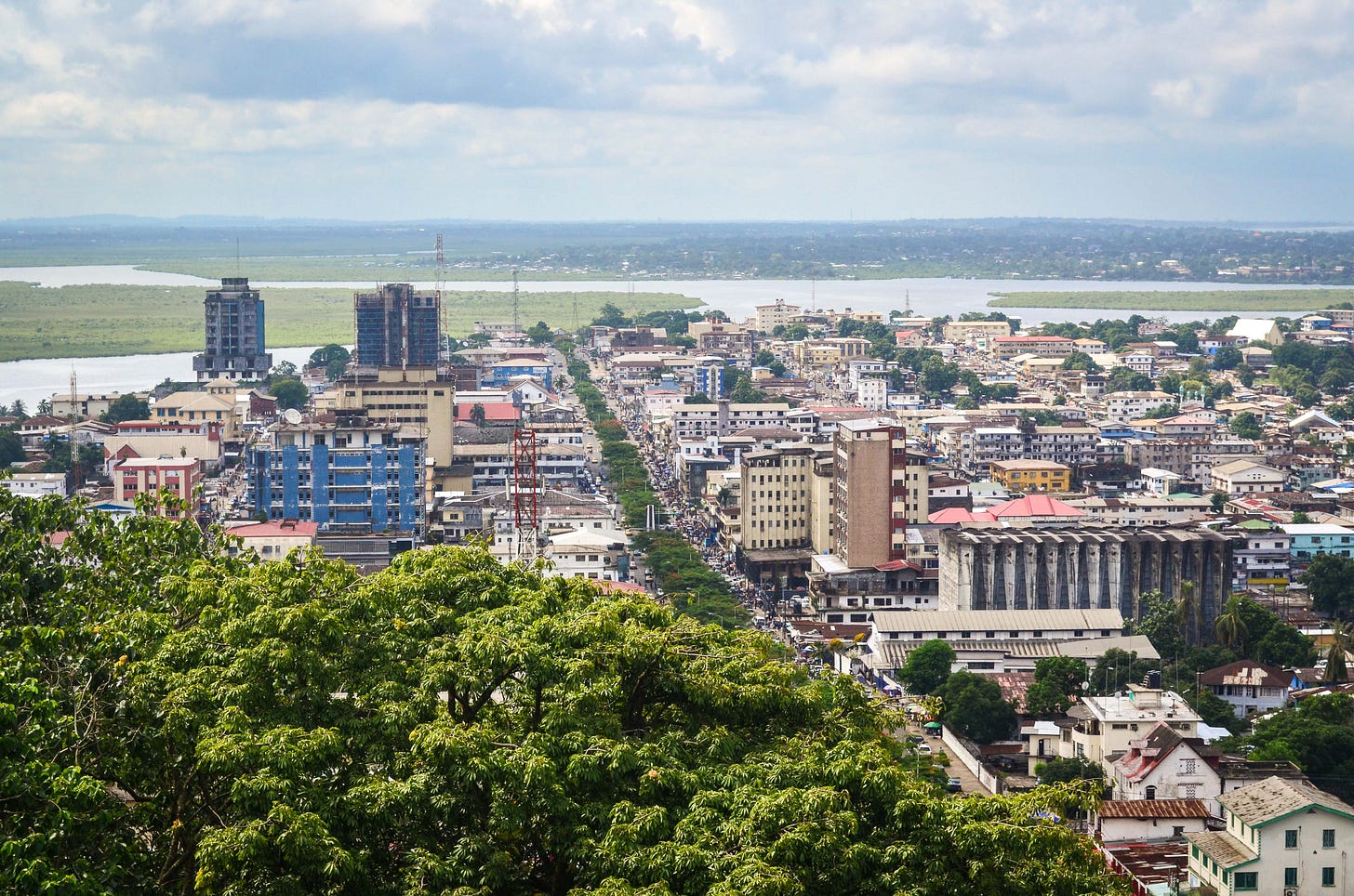🔅 African Fashion: Sustainability Never Looked So Good On You!
West African Designers, Chocolate Giants' Profits, and the UK's Rwanda Scheme
Photo of the Day

Spotlight Stories
West African Fashion: Sustainability Never Looked So Good On You!

While the global fashion industry is busy churning out fast fashion faster than you can say "out of season," West African designers are quietly revolutionizing the game with their bespoke models. They're doing it with a lot more style and a lot less waste.
In a world where the conversation about sustainable fashion has been dominated by the Western and Asian fashion industries, West Africa has been largely overlooked. However, as one study shows, West African designers are not just producing clothes – they're producing a model for sustainable fashion that allows more space for creativity and innovation while also using environmentally friendly laundry measures to ensure the long lifespan of clothes.
So, what makes West African fashion so special?

For starters, designers are guided by the socio-cultural milieu of fashion consumption in the cities where they live. They tap into a culture that values exclusivity, uniqueness, and individuality, and they grow it.
By producing collections only every few months instead of every two weeks, like Western fast fashion brands, West African designers can invest time in creating innovative designs that are not easily replicated.
But it's not just about the designs—it's about the emotional bond that's created between the clothes and the wearers. By considering the consumer's socio-cultural needs in the production process, designers produce more personalized pieces that are difficult to part with. When you add in traditional methods of maintaining and laundering clothes, like hand washing, you get clothes that last longer and are more environmentally friendly.
Of course, there's still room for improvement, and you can find out why here.
How Much, Exactly, Do Chocolate Giants Rake In?!

As the World Cocoa Conference kicks off in Brussels, the industry is facing a bittersweet reality: unprecedented production shortfalls and skyrocketing cocoa prices. But while chocolate lovers may be feeling the pinch at the checkout, the real story lies in the stark contrast between the fortunes of chocolate giants and the struggles of cocoa farmers.
New Oxfam analysis has revealed some jaw-dropping figures. Lindt, Mondelēz, and Nestlé together pocketed nearly $4 billion in profits from chocolate sales in 2023, while Hershey's confectionary profits hit $2 billion.
And get this: these four corporations paid out an average of 97 per cent of their total net profits to shareholders last year. Talk about a sweet deal for investors!
Meanwhile, the collective fortunes of the Ferrero and Mars families, who own the two biggest private chocolate corporations, surged to a staggering $160.9 billion.
To put that in perspective, that's more than the combined GDPs of Ghana and Ivory Coast, the countries that supply most of the world's cocoa beans.
The bitter truth is that decades of low prices have left cocoa farmers struggling to make ends meet. They can't afford to hire workers or invest in their farms, which limits bean yield and leaves their old cocoa trees vulnerable to disease and extreme weather. It's a vicious cycle that's driving many farmers to abandon cocoa for other crops.
So, while the chocolate giants are raking in billions and showering their shareholders with profits, the cocoa farmers who make it all possible are being left behind. It's a stark reminder of the inequalities that persist in the global food system.
UK's Controversial Rwanda Asylum Plan Takes Off, Despite Turbulence

It is a move that has human rights advocates up in arms, as the UK government secured approval for its controversial bill to send asylum seekers to Rwanda. Prime Minister Rishi Sunak, hoping to boost his Conservative Party's dismal fortunes in the upcoming election, has promised to start the first flights to Kigali within weeks.
The House of Lords, an unelected chamber, had long refused to back the divisive plan without additional safeguards but relented after Sunak threatened to keep parliament in session as late as necessary to get the bill passed. "No ifs, no buts. These flights are going to Rwanda," Sunak declared, channelling his inner Thatcher.
The Rwanda scheme, which has been criticized by UN human rights experts and groups supporting asylum seekers, has faced legal challenges since its inception. In June 2022, the first deportees were taken off a flight at the last minute after an injunction from the European Court of Human Rights, and the following year, the UK's Supreme Court ruled that sending asylum seekers on a one-way ticket to Kigali was illegal and would put them at risk.
But the government pressed on, despite even the hefty price tag:
The National Audit Office estimates that it will cost the UK some 540 million pounds ($665m) to deport the first 300 asylum seekers.
Critics argue that the plan is inhumane, citing concerns about Rwanda's alleged human rights record and the risk that asylum seekers may be sent back to countries where they would be in danger.
Despite the opposition, 150 people have now been identified for the first two flights, and the prime minister is hoping that the scheme will help the Conservatives win back voters who believed that the UK's departure from the EU would give the country "control" over its borders and the ability to reduce immigration.
Meanwhile, the opposition Labour Party has said that it will scrap the scheme if it wins power and works on a deal with the EU to return some arrivals to mainland Europe. It's a reminder that when it comes to immigration policy, there are no easy answers, but there are certainly plenty of controversial ones.
Food for Thought
“Slander by the stream will be heard by the frogs."
— Mozambican Proverb



